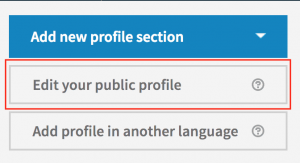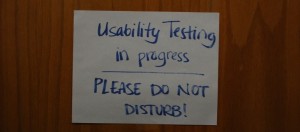
We’ve reached the penultimate post in our Starting a Business series and it’s time to talk about one of the most important decisions any small business owner will face: choosing a location for their business.
Choosing the Right Area for Your Business Location
Before you start looking at specific spaces for your business you first need to decide which neighborhood is right for your business. Here’s what you need to know:
Proximity & Convenience
You don’t need us to tell you that this is a big one. Starting from the top, is the area convenient for you?
As the business owner you’re likely to spend more time travelling to and from your business location than anyone else. And, let’s be honest, your business is not going to thrive if your commute makes you miserable.
What about your employees? Is it easy to get from local residential areas to the business? Is there public transport or employee parking? This is something you’ll have to think about even more carefully if you rely on specialist or expert employees.

Demography
When it comes to customers you need to take a more scientific view of things. It’s time to turn to demography. If you spent the necessary time on your business plan you should know exactly who your customers are: their age range, gender split, income, shopping habits, needs and interests. This should make it easy to answer the most important questions in the process of choosing a business location:
Do enough of my target customers live within reasonable travelling distance of my location?
There are a number of great resources to help you determine if the area you’ve chosen is compatible with your business.
Brand Image
How does the ambience and reputation of the neighborhood match with the image you’re trying to portray for your company? You can be sure that potential customers will conflate the image of the surrounding area with that of your business, no matter what your marketing might say.
This can also have an impact on office-based businesses. If you’re offering an expensive consulting service and intend to host meetings with clients, you need to think of the impression that the local neighborhood will make upon them, because it will reflect on the prestige of your service.

Visibility
This is an important consideration for commercial businesses that rely on passing foot or vehicular traffic for new customers – such as restaurants and retail stores – but is a much smaller consideration for workshops, fulfilment centers and office-based businesses.
Competition & Compatibility
Competition is bad, right? Well, not always.
If you’re located close to a competitor that spends big on marketing you stand to benefit from the customer base that visits the area. Of course, if you can’t compete on price or choice you might want to think about this more carefully.
Compatibility with local businesses is a related consideration. Think fitness apparel close to a busy gym. In a more general sense, a retail store (especially one that doesn’t offer a unique or niche product) will almost certainly fare better in a shopping neighborhood with a lot of foot traffic.
Choosing the Right Site for Your Business Location
It’s easy to fall in love with a particular property. Sometimes you just find a place that feels exactly right and you can’t imagine your business working anywhere else.
That’s great. Success requires passion, and it’s important to listen to your heart. But your head must have its say too.
Size
The importance of not spending too much on an inappropriately large space requires little explanation, but you also need to make sure you don’t take on too much of the wrong kind of space. As a retailer, for instance, showroom space is much more valuable to you than backroom storage or offices.
On the other hand you mustn’t ignore the need to allow room for your business to grow. In your business plan you should have projected the likely growth of your business. Don’t forget to take this into account. If you’ve predicted that your business will double in size over the next three years it might not be a good idea to sign a five-year lease on a site that gives you no room to expand.

Facilities
Choosing a location with appropriate facilities will save you a lot of time and money. If you’re planning a restaurant or café, a preexisting kitchen will save you thousands. If you’re planning a workshop then power and safety facilities should be considered.
Even an office space might require expensive installations for modern communications.
It’s important to consider these things before you fall in love with a space, or your start-up costs could become prohibitive.
Zoning
Before you sign a lease on your business location it’s important to ensure that local zoning ordinances are compatible with the type of business you want to run. Zoning laws can also have an impact on any construction or even cosmetic changes you want to make to the property.
You should start by approaching your local planning department but if things get complicated, or you’re unsure of your position, contacting a local specialist attorney could save you thousands in the long-term.
Traffic
Traffic can have both a negative and positive influence on the success of your business. We discussed some of the positive aspects above – traffic means people, which means potential customers. Good.
But there are other things to consider too. Will traffic jams make it difficult for customers and employees to get to you?
You should make sure to look out for things like one-way streets, dead ends and localized traffic bottlenecks.
Getting the Financials Right for Your Business Location
Now you have a pretty good idea about the key things to take into account when searching for the perfect business location but sadly that’s just half the story. As with everything in life, financial considerations will have a deciding role to play in your choice.
Rent
You will have done some in-depth calculations when setting out your business plan, so you should already have a good idea about how much to budget for renting your business location. It’s a good idea to speak to local agents to get a good idea about the average rental costs in the area so you can make an informed decision. You should also think about speaking to a lawyer about the terms of the rental agreement so that you know where your responsibilities begin and end.
Taxes
This is an issue that’s at least worth considering if you live within reasonable commute of another state. State income and sales taxes can vary widely, to the extent that opening up shop in one state rather than another could have a serious impact on your bottom line. If you don’t have any strong ties to the area where you’re living then it’s worth looking at in depth. To a lesser extent the same goes for cities within a state. Entrepreneur’s list of the best cities for small businesses is a good place to start.

Incentives
Not only do costs such as taxes and rent vary depending on your business location but so do special incentives such as tax credits, exemptions, grants and loan programs. The State Business Incentives Database offers a great overview and comparison of the programs available in each state.
It’s a good idea to speak to an advisor at your local Small Business Association District Office or Small Business Development Center. Not only will they advise you on any programs that may apply to your business, they also provide guidance on everything you need to know in setting up your business.

(240)








